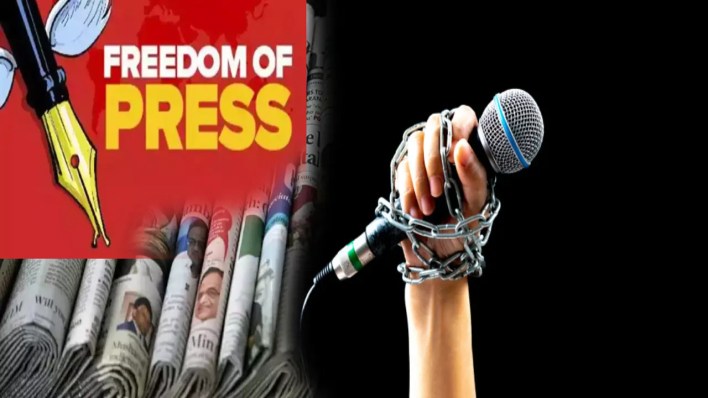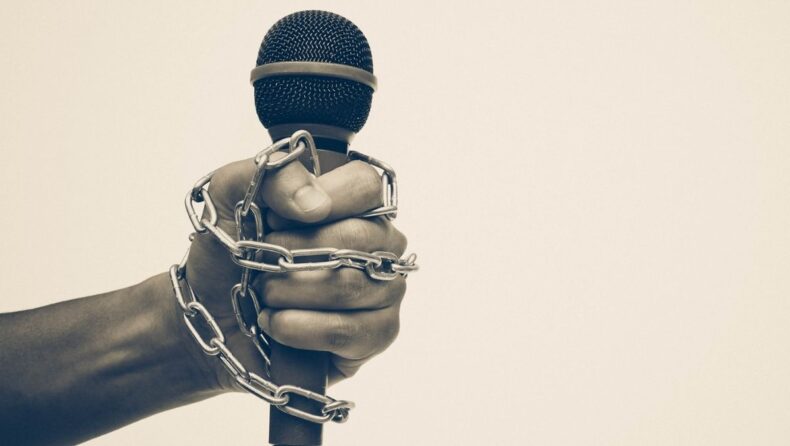NEW DELHI: India dropped eight spots to 150th place in the 2022 World Press Freedom Index, which ranks 160 nations. The index was released on Tuesday by Reporters Without Borders, indicating a twofold increase in total media polarization, resulting in splits inside nations and between countries on the world stage.
According to the study, India’s rating decreased as a result of “increasing violence against journalists” and a “politically politicized media,” which has resulted in a situation of “crisis” for press freedom in the world’s largest democracy.
The study examines the degree of freedom enjoyed by journalists, news organizations, and netizens in each nation, as well as the measures made by individual governments to protect such freedom.

All of India’s neighbors have also lost ground, with Pakistan falling to 157, Sri Lanka to 146, Bangladesh to 162, and Myanmar to 176 on the index.
According to the index, India’s media, which is believed to be more democratic, is under pressure from “increasingly authoritarian and/or nationalist administrations,” a transition that has occurred since 2014, when BJP came to power in the country.
“From the start, Modi was dismissive of journalists, viewing them as ‘intermediaries’ who contaminated the direct contact between himself and his fans. Indian journalists who are excessively critical of the administration face widespread harassment and assault campaigns by Modi supporters aka ‘Bhakts,’ the study states.
It also criticizes India’s policy framework, which is protective in principle but resorts to charging journalists critical of the government with defamation, sedition, contempt of court, and harming national security, labeling them as “anti-national.”

With an average of three or four journalists slain each year in the course of their job (one since January 2022 and 13 now imprisoned), India is also one of the most hazardous nations in the world for journalists, according to the research.
“Journalists face a range of physical threats, including police brutality, ambushes by political activists, and lethal retaliation by criminal gangs or corrupt local authorities,” the report stated.
Additionally, the World Press Freedom Index notes that the situation in Kashmir remains “dangerous,” with journalists being harassed by police and paramilitaries.
According to a joint statement released by the Press Club of India, the Press Association, and the Indian Women’s Press Corps, attacks on the media have increased in “many ways.”
Edited By : Khushi Thakur
Published By : Shubham Ghulaxe
Read More: China Seeks for Immediate Meeting, As Sri Lanka Relents to India’s Pressure
Read More: MTV India’s Broadcast of LaLiga Records an Impressive Reach













